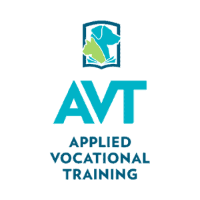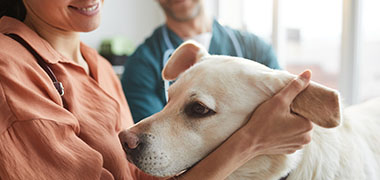
This role has a low level of AI exposure. Core skills such as adaptability, social intelligence, and complex physical tasks remain beyond the capabilities of current AI.
Explore all careersAn Animal Attendant cares for animals by providing food, monitoring health, cleaning, and grooming. Patience and observation skills are essential.
Get qualified to work as an Animal Attendant with a course recognised across Australia. Speak to a training provider to learn more.















In Australia, a full time Animal Attendant generally earns $1,190 per week ($61,880 annual salary) before tax. This is a median figure for full-time employees and should be considered a guide only. As you gain more experience you can expect a potentially higher salary than people who are new to the industry.
 Courses.com.au Team
Courses.com.au Team
There are currently 16,500 Animal Attendants in Australia and this number is expected to increase in coming years. There will be 18,200 animal attendants in five years’ time. Animal Attendants can be found in all areas of Australia.
Source: The Labour Market Information Portal – 2019 Occupation Projections
 Courses.com.au Team
Courses.com.au Team
If you’re thinking of embarking on a career as an Animal Attendant you could enrol in a Certificate II or III in Animal Studies. These courses address the health, nutrition and hygiene information you need to succeed in this industry. You could also consider a Certificate III in Companion Animal Services.
 Courses.com.au Team
Courses.com.au Team
Browse occupations related to Animal Attendant



Are you looking to start a rewarding career working with animals? The Animal Attendant courses in Tasmania offer a fantastic opportunity for animal lovers to turn their passion into a profession. These courses cover essential skills and knowledge required to work effectively in various animal care environments, making it an ideal starting point for anyone interested in the animal care industry.
In Tasmania, you can find reputable training providers, such as GYC, which offer comprehensive Animal Attendant training. These Registered Training Organisations (RTOs) ensure high quality education and prepare you for the practical aspects of the job, from animal handling to understanding animal behaviour. Completing an Animal Attendant course will open doors to several fulfilling career paths.
Upon finishing your studies, you may want to explore related job roles in the animal care industry, such as a Pet Groomer or a Kennel Hand. Alternatively, positions like Cattery Attendant or Kennel Attendant also offer rewarding career options. Each role comes with its unique responsibilities and can greatly benefit from the foundation built through Animal Attendant courses.
In addition to working directly with pets, you might also consider roles that focus on wildlife, such as a Wildlife Carer or Zoo Keeper. Pursuing further studies can lead you to explore careers in animal research and conservation, including becoming a Zoologist or Ecologist. The possibilities are vast for those with the right qualifications from the courses available in Tasmania.
Whether you are interested in domestic animals or wildlife, the Animal Attendant courses in Tasmania equip you with invaluable skills to kick-start your career. As you complete your training, remember the importance of networking and seeking out opportunities in various fields, including those like Wildlife Conservator and Wildlife Rehabilitator. Embrace your passion for animals and consider enrolling in a course today to embark on an exciting journey in the animal care industry!